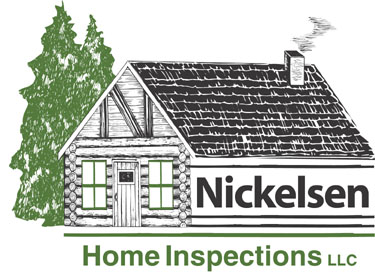NHI Technical Bulletin: Typical Design Life of HVAC Equipment
You may have found in your home inspection report a note about the typical design life of the furnace, AC or heat pump being close to or nearing the end of its intended design life.
What is being said here?
First let it be stated that the Standards of Practice in Oregon and Washington, which governs the process, do not require the home inspector to note the age or estimated age of the equipment. Doing so is a courtesy, and should not be establishing a level of expectation, express or implied, that the Standards of Practice do not remain in effect.
HVAC equipment has a typical design life and, as such, we wish to note the age or estimated age of the unit, and let our clients know if the units are near, at, or beyond the intended design life.
For our purposes, we use a typical design life of 17-20 years for furnaces, air conditioners, and heat pumps. Some sources will go higher, and some will go lower. 17-20 seems to be a good average and is in general conformity with the following resources:
- This Old House, How Long Things Last (uses 15-20 years for furnaces, 16 years for heat pumps, 10-15 years for air conditioning units). CNN Money uses the same estimates.
- HVAC.com, “What is the Life Expectancy of my HVAC System” (uses 15-25 years for furnaces, 12-15 years for air conditioners, and 16 years for heat pumps).
- US Department of Energy Building Technologies Program, vol. 14 (Aug. 2011) (15-20 years for air conditioners)
- National Association of Home Builders/Bank of America Home Equity “Study of Life Expectancy of Home Components” (AC: 15 years; electric boilers: 13; gas boilers: 21; electric furnaces: 15; gas furnaces: 18; oil furnaces: 20; heat pumps: 16).
- International Association of Certified Home Inspectors (Furnace: 15-25 years; boilers: 40; AC: 7-15; condenser: 8-20; heat pump: 10-15).
Again, because there is reasonable debate about the estimated design life of any building component, and some of the estimates are regionally-specific and contingent upon how a system or component is maintained, Nickelsen Home Inspections, LLC approaches the matter by simply using 17-20 years for heat pumps, air conditioners, and furnaces.
Q. “If my unit is at or beyond its design life, should I update it?”
Answer: That’s really up to you. Certainly, if you have an older unit you should certainly have the system serviced and it should be serviced annually. Think of it like an older car: the older it gets, the more you may need to maintain it as parts fail or preventatively through maintenance.
Q. “My AC unit is 16 years old and some of the links you provided state that the typical design life is 12-16 years old. Why aren’t you noting that it is beyond its design life?”
Answer: This is answered already above. We use 17-20 years.
Q. “I had an HVAC contractor come and was surprised that you didn’t advice that the unit be updated given its age.”
Answer: Home inspectors do not make their money by making recommendations for repairs or replacement—contractors do. As such, it shouldn’t be surprising to you that they might make recommendations that a home inspector would not given that the HVAC contractor has a financial interest in their recommendations. Further, HVAC contractors are specialists and are not home inspectors, who operate under their own set of State required Standards of Practice. As such, it should go without say that if a home inspector evaluates the HVAC equipment vs. a HVAC contractor/specialist the results will likely be different. In the end, we don’t make replacement recommendations solely based on the age of a system. As this technical bulletin notes, we are simply, as a courtesy, noting the age or estimated age of the unit and what its typical design life is, and we use 17-20 years as the basis. Simply being at or beyond that typical design life is not fodder for a home inspector to recommend updating the system. It is, however, a good reason to ensure that the system is serviced.
Q. “This article doesn’t mention anything about other systems like geo-thermal heat pumps, boiler systems, oil fired units, hydronic heating systems, ductless heat pumps and the like. Do you use the same numbers?”
Answer: We do, yes. We use 17-20 years.
--
Nickelsen Home Inspections, LLC, originating out of Inspection Consulting, INC, which was established in the 1990's, is one of the most tenured and experienced inspection firms in Washington or Oregon, and is proud to be a family-owned operation. Performing inspections from the coast (Astoria, Newport, Lincoln, Long Beach, and more) to the valley (Portland, Salem, Olympia, Seattle), to the mountains (Hood River), and the high desert (Wenatchee, Bend, Yakima), and up through the Olympics (Bremerton, Port Angeles, Port Townsend and more), NHI is willing to travel far and wide for our clients and have been doing so for over two decades because they have asked! Nickelsen Home Inspections performs residential and commercial property inspections, as well as radon testing, sewer scopes, moisture intrusion inspections, construction draw, termite inspections, infrared thermal imaging, pest and dry rot inspections, NPMA-33 inspections, WDO inspections and more. If you are looking for experienced home inspectors, performing over 1,000 inspections a year, from a family-owned firm, you have come to the right place.
Nickelsen Home Inspections, LLC - 2020
